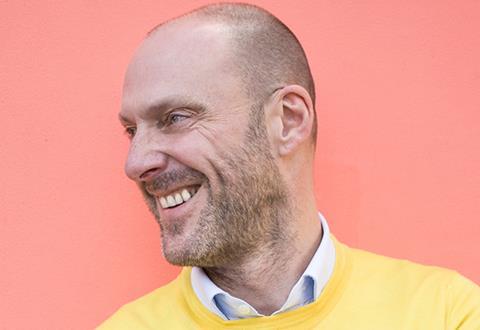Delivering on the sustainability agenda is hard and requires those at the top to believe in what they’re doing, writes Martyn Evans

Last week I was a guest on a hard hat tour of Tower Bridge Court, a 100,000 sq ft commercial office retrofit scheme designed by Stiff + Trevillion, just on the South side of Tower Bridge in London, that went on site last October. The developer is Fore Partnership, led by Basil Demeroutis, whose website opens with a very pleasing film of green shoots appearing out of spring soil with the words ‘Doing well by doing right’.
Look deeper into Fore’s website and you’ll find this story woven throughout. We’re conditioned to this stuff – you can’t be developing property now without paying considerable attention to your ESG credentials. Your investors, occupiers, funders and even your own team simply won’t allow it.
But what we also know is that it’s hard, and to set out your stall on the front page of your website with such a bold assertion is brave. So, why is Demeroutis so confident that he can deliver?
To meet him is to understand exactly why he is likely to succeed in his mission – because he cares
The answer is in the man himself. To meet him is to understand exactly why he is likely to succeed in his mission – because he cares. At the end of the day you can buy all the technical advice you like and make every case for the commercial benefits of tackling the sustainability agenda but the only thing that will work in the end is if those leading our industry give a sh*t. Personally.
A quick presentation in the site office before we set off on our tour set out the project’s credentials. It’s a retrofit, so it already benefits from considerable embodied carbon impact. It was interesting hearing about the decisions they had to make – sometimes compromising on cash and carbon costs to do works necessary simply to make the building work better for a contemporary occupier.
These are the decisions we have to make every day - how to minimise cost and impact while maximising value. If you start from the position that all development costs something in environmental terms, then difficult decisions need to be made.
The only way this works is if those at the very top of our organisations believe in their bones in what they’re doing
What will ensure you make the best environmental decisions, most of the time, is to form a set of principles at the start of your project and stick to them. The only way this works is if those at the very top of our organisations believe in their bones in what they’re doing and lead their businesses accordingly.
Listening to Demeroutis talk proudly about his project is to listen to a man who is thrilled that his team found a paint for the hoardings that collects CO2. They are working with the developers of Concretene, a completely game-changing concrete product that includes graphene and uses up to 30% less carbon (we were the first developer to use this product at our Mayfield project in Manchester).
Fore supports clean proptech start-ups, has developed a smart approach to offsetting that includes community cohesion, wellbeing and education opportunities and works with banks and financial institutions that have a ‘clear demonstrable, measurable commitment to a low carbon future’ – their own goal is to get their business and portfolio to a net-zero position by 2025. There is even a pile of boxes next to the door, full of food collected through a tax on all visitors that is donated to the local food bank.
Every day, in so many ways, there is pressure to compromise on this agenda
I’m not claiming that Demeroutis is leading the most progressive development business in London - there are plenty of others with a similar commitment to the ESG agenda, including my own. What I am suggesting is that it’s hard.
Every day, in so many ways, there is pressure to compromise on this agenda. Cost, technical considerations, the speed necessary to deliver for the market, availability of materials and the skills necessary to use them properly. All of these present hundreds of micro problems every week.
It’s so easy to lose your way as each small compromise cuts into the overall delivery story. But what will make it work is personal commitment from the leadership of our businesses. And that isn’t just about good management.
When you listen to Demeroutis talk about his building and its credentials with such obvious pride you can tell it’s him, pounding the internet’s pavements to find the right paint, the right concrete and the right local community group to support. It’s hard, but it’s the only way.
Postscript
Martyn Evans is creative director of U&I
















No comments yet